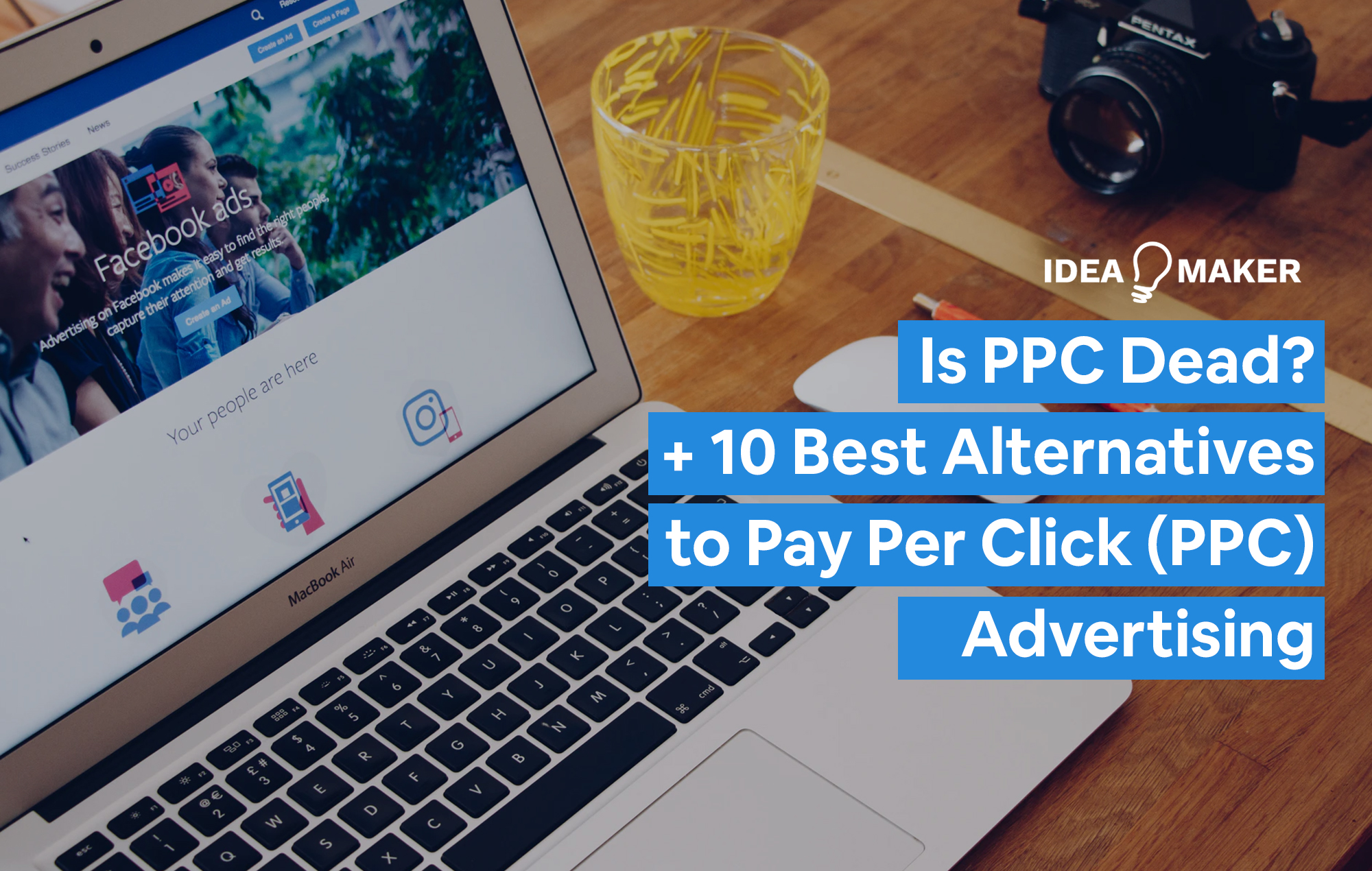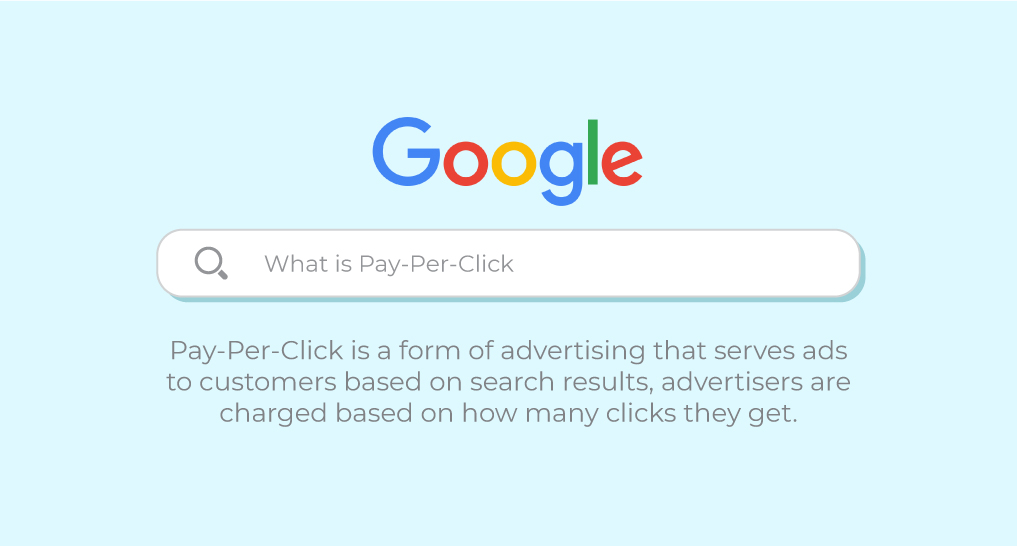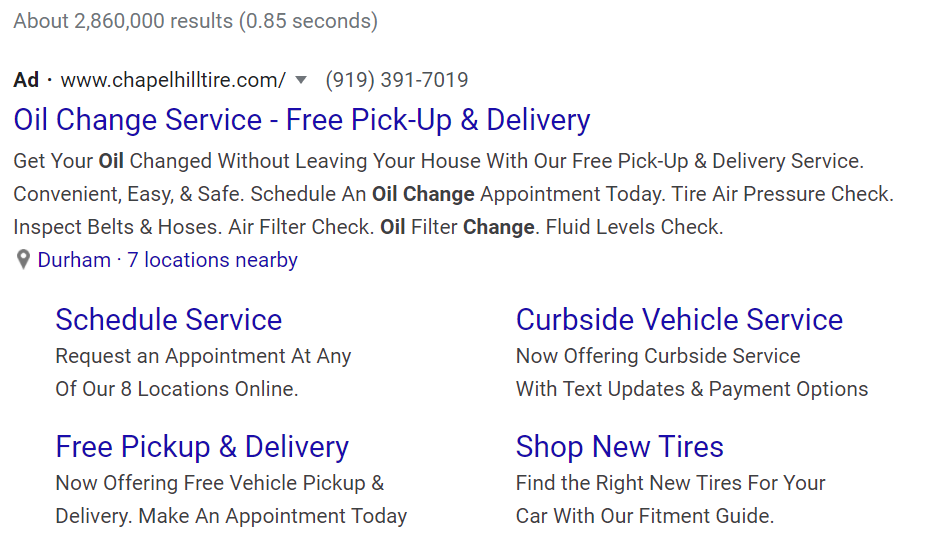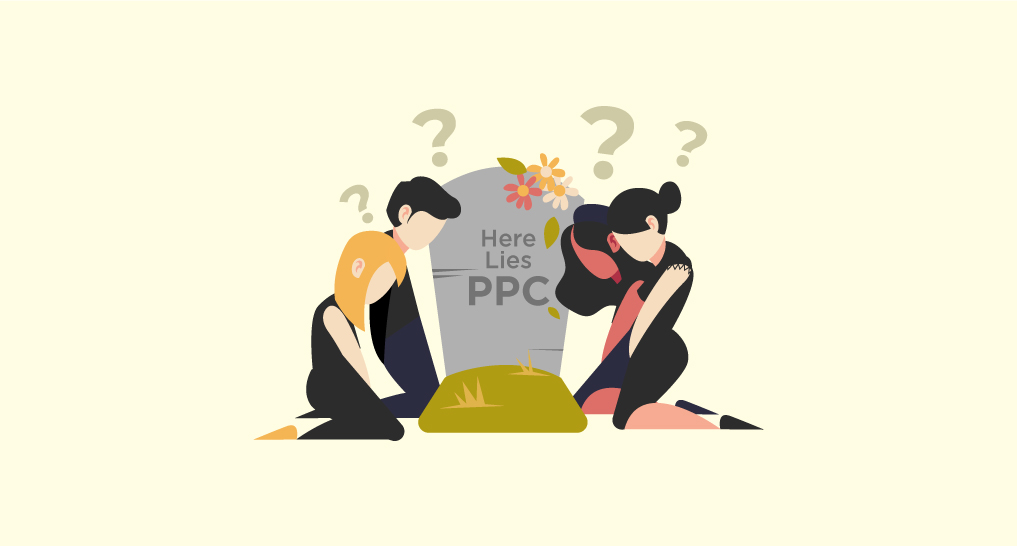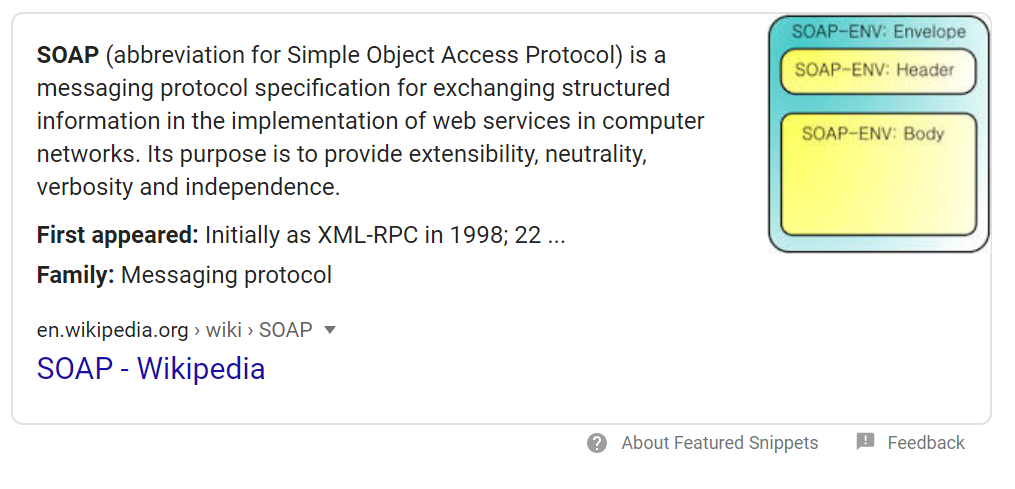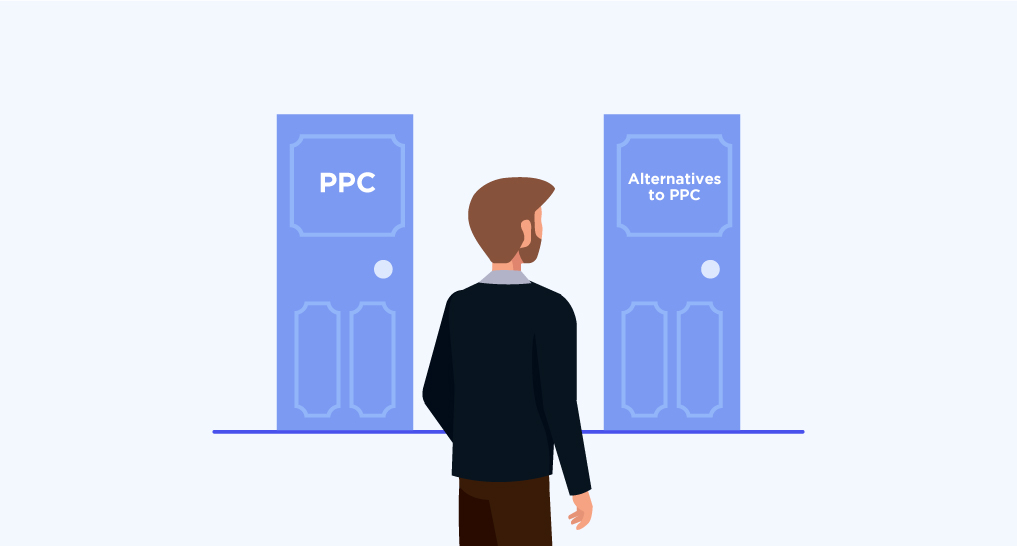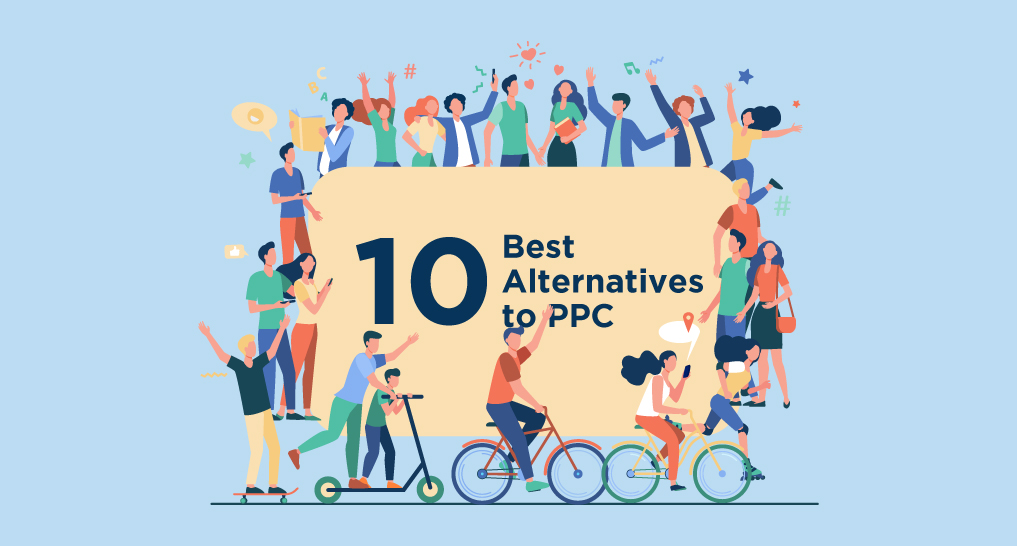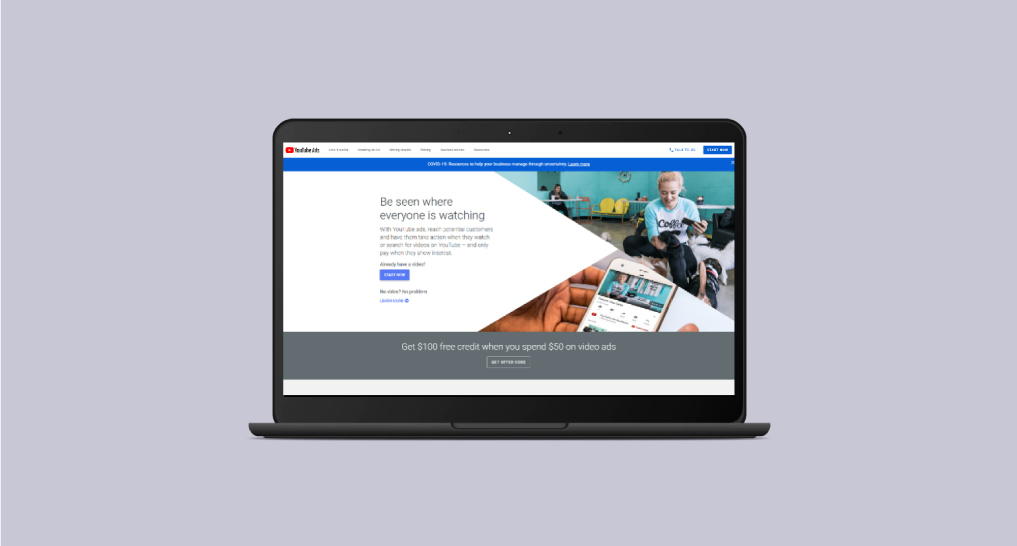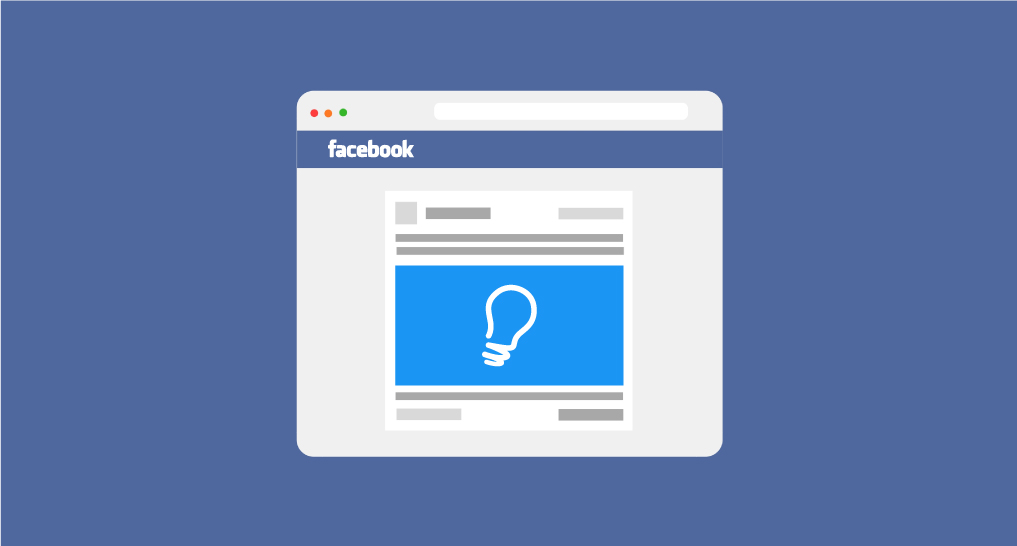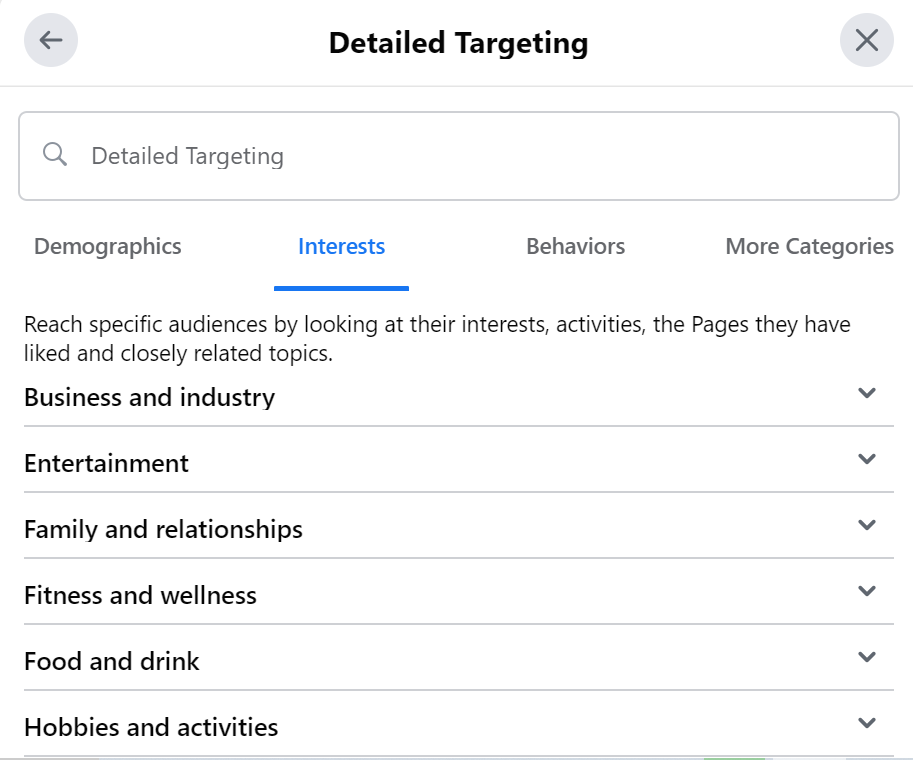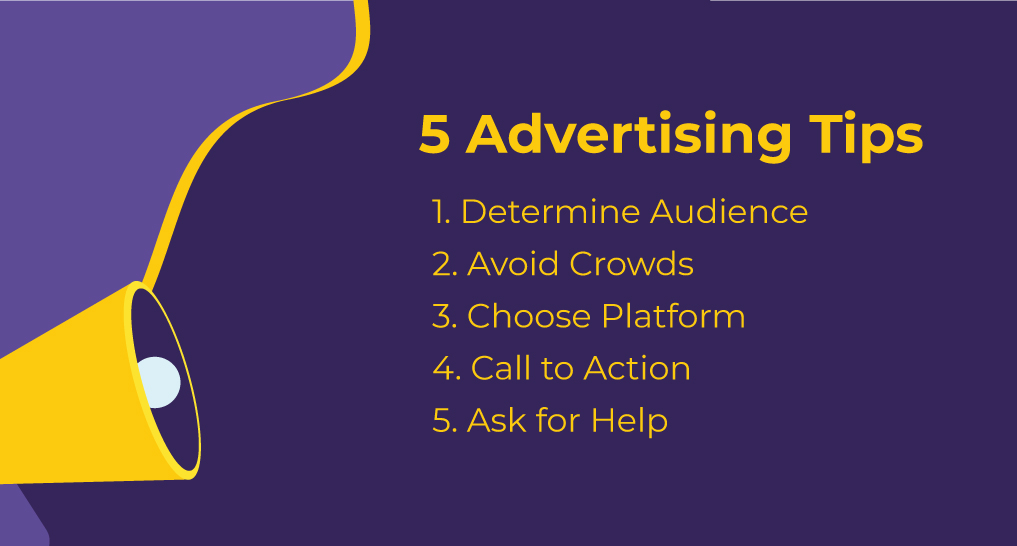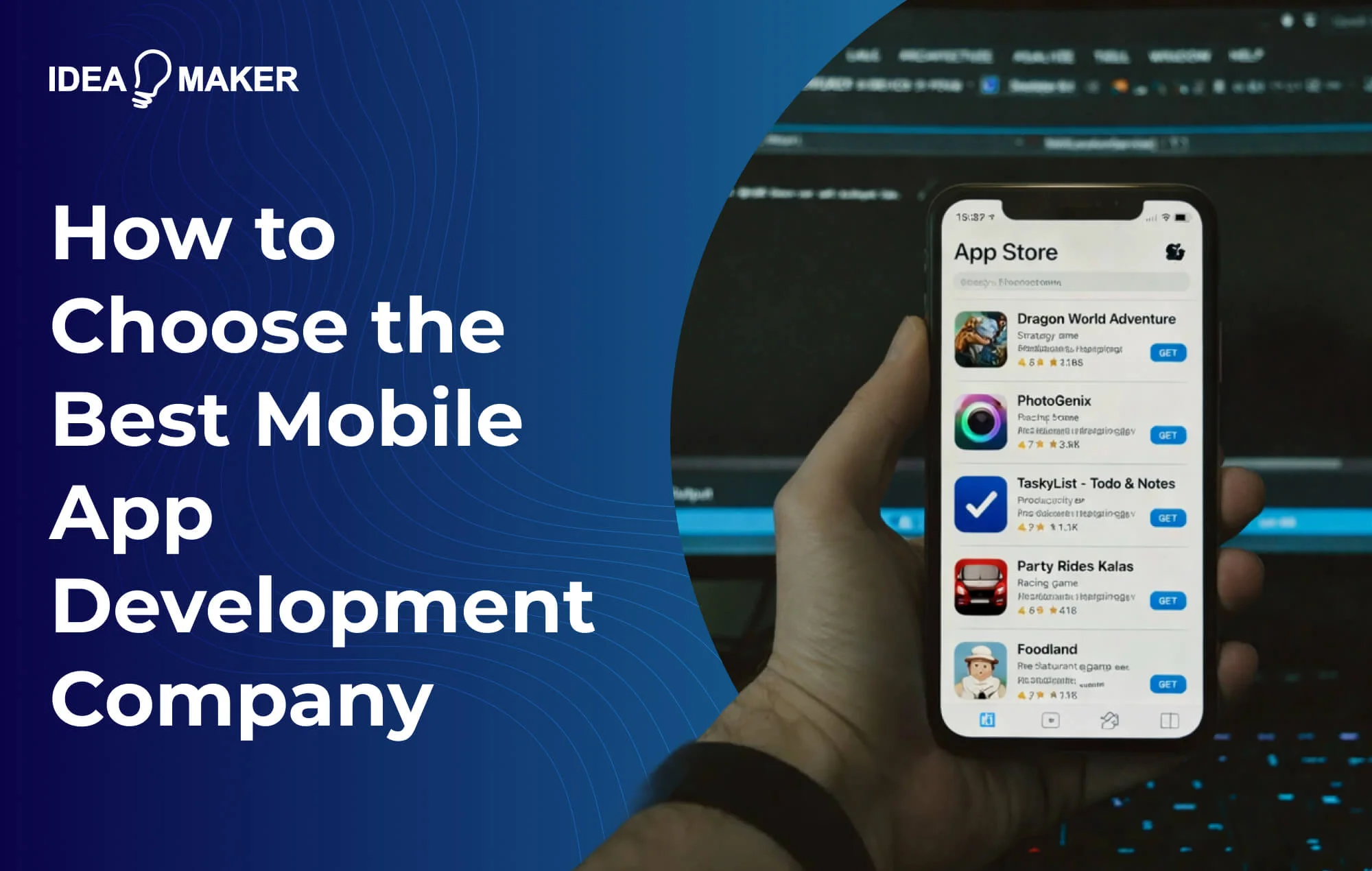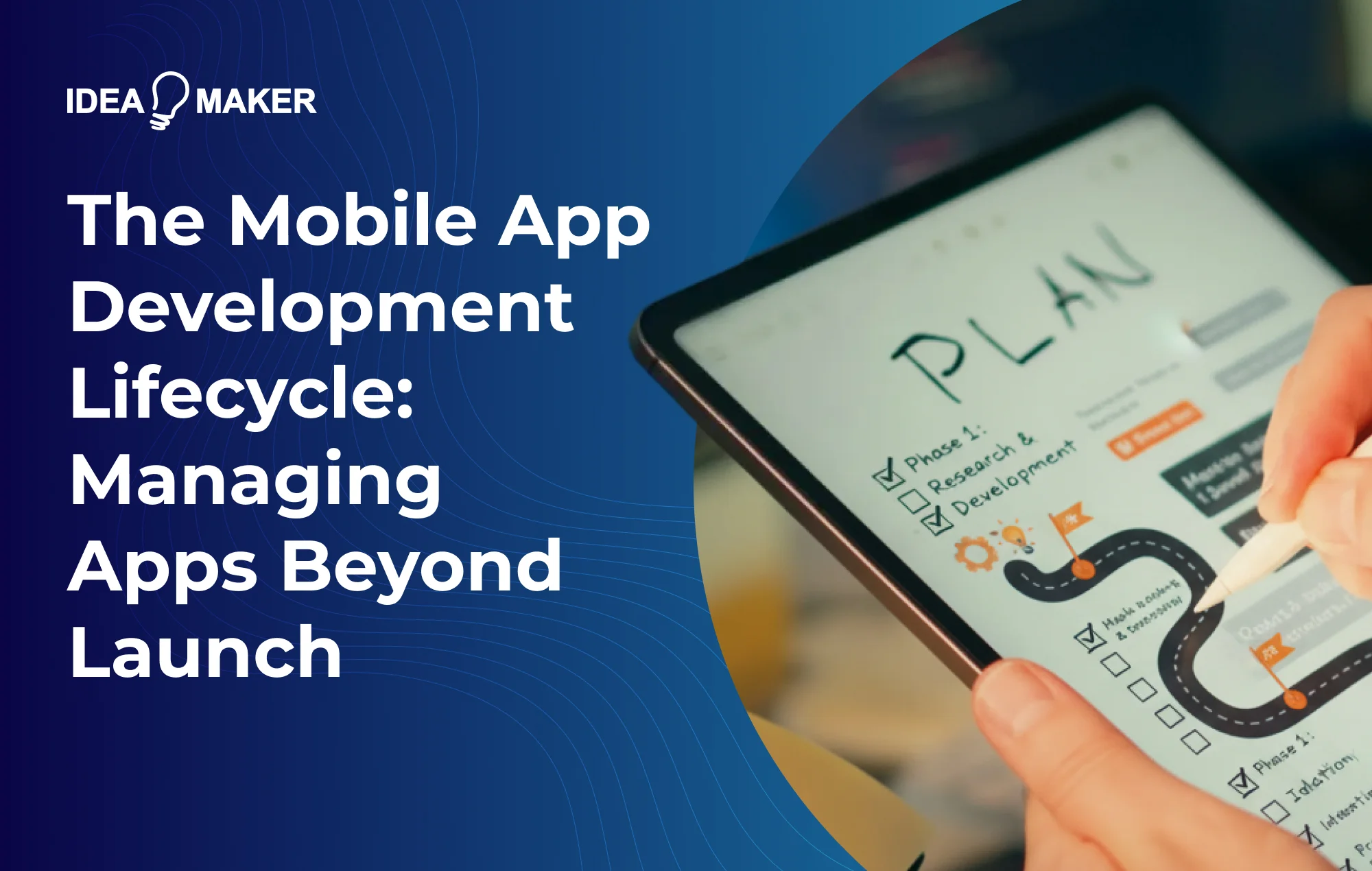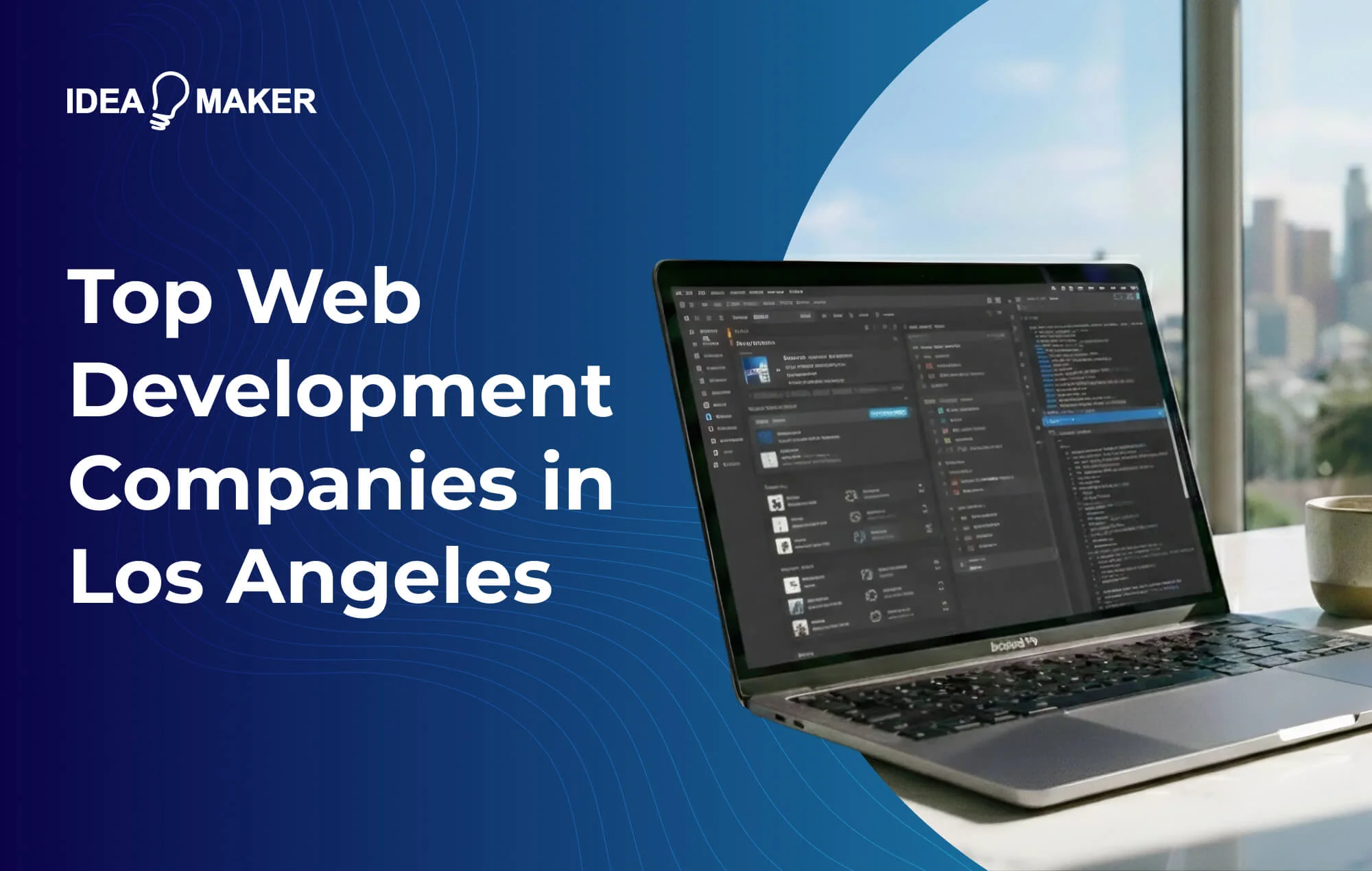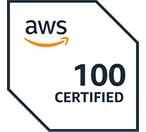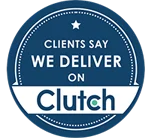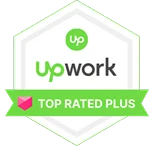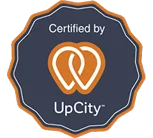Before the internet, advertising simply combined pretty pictures with catchy headlines. There have been many technological advances in advertising including TV ads and moving billboards but none of them changed advertising the way that the internet did. Before the internet, all you had to do was get your name out so that people would buy your product or service.
Companies spend billions of dollars on traditional advertising a year. But more than that they spend thousands of hours annually analyzing their customer base in order to meet their wants and needs. While it all sounds effective, it is only somewhat more effective than standing on a street corner with a megaphone yelling at people to buy your wares.
However, the internet and search engines like Google, Bing, and Yahoo changed everything with pay-per-click or PPC advertising. Did you know that Google made over 134.81 Billion dollars from its advertising? The majority of that nearly 135 Billion was from PPC. Google is the top paid search advertiser, owning 73 percent of the market.
Table of Contents
What is Pay-Per-Click?
As you may already know, Google is a search engine. However, Google is able to provide users with its many free services by selling ads that are directed at users while they are searching. The reason behind Google’s investment in search is that they learn about their users and are able to serve them highly relevant ads.
For example, if you search for “change oil 2016 Chevy Impala,” Google learns the following information about you:
- You need to change the oil in your car
- You may need to buy motor oil
- You own a 2016 Chevy Impala
- You are trying to do this work in the near future
Below is a screenshot that will show you an example of an ad that Google might show when you make this search:
The ad will likely be different for you depending upon your location and the information that Google has about you. And if you scroll lower on the search engine results pages you will find results for:
- How to change the oil
- The maintenance schedule for a 2016 Chevy Impala
- YouTube videos showing you how to change the oil yourself
Google shows you the ad because the person paying for the ad is hoping that because you need to change the oil in your car, you will come to them instead of trying to do it yourself. If you decide that you would rather go to the place they are advertising rather than review how to do it yourself, you will click on the ad.
When you click the ad a few things happen. First, the company that placed the ad pays money to Google for your click. The second thing that happens is you go directly to that company’s website where you can schedule an appointment to have your oil changed. Third, you go in for your appointment and pay that company money which is why paying for pay-per-click ads can be a good idea for companies.
How Pay-Per-Click Advertising Works
Pay-Per-Click advertising is an innovation credited to Bill Gross. The way PPC works is that companies are only charged when someone clicks on their ad. Companies like this because they only pay for results. If no one clicks on their ads, they don’t have to pay anything.
Innovation in the pay-per-click model made by Google is that they set up a system where the companies bid on ad space. Those advertisers that are willing to bid more on ad space are given priority. This allows Google, and other pay-per-click companies, the ability to:
- Charge an optimal price for millions of different advertising opportunities
- Allow the market to determine the cost
- Reap payments from their highest-paying customers
- Give everyone the opportunity to benefit from pay-per-click
For example, one auto repair company may be willing to pay $2 per click to gain new oil change customers and have a $100 budget. Another auto repair company may only be willing to pay $1 per click with the same $100 budget. Google will first show the higher paying ads to Google searchers before showing the lower-paying ads.
However, depending on the market, this may mean that the lower-paying company may not ever have their ads shown to customers meaning that they lose out on customers.
While this may sound great, and it was for a while, the market is harder and you may not be willing to wait in line for your turn to show ads at the price you’re willing to pay.
Is PPC Dead?
Pay-per-click isn’t dead, the problem is that many people use it without thinking about how to use it in the best way. PPC can be a wonderfully effective way to advertise your business to the world and your local area but if you’re doing it wrong, you’re going to have a problem.
There are so many reasons why people think that PPC ads are too expensive to get in front of quality leads. However, this is because people are missing out on key advice to help them better prepare their pay-per-click ad campaigns.
5 Common Problems with Pay-Per-Click Campaigns
1. Not Using the Right Keywords
The first problem that usually makes people think that PPC is dead, is they don’t use the right keywords. Often a business will think “well, I make “soap” so I should try and target all people searching for soap with my ad. ”
Unfortunately, for a small business, the keyword soap will not only get you information on things that aren’t related to body soap but can be extremely expensive to target if you don’t have the right budget.
The best thing to do when you are first starting out is to attempt to target keywords with low competition, for these keywords you can easily get away with paying a lower amount. You can use tools like MOZ to help you search for target keywords that are easy to target. These tools; however, do come at a cost.
2. Not Focusing on the Right Audience
Another problem that causes people to think that pay-per-click isn’t worth the time or effort is that they are trying to target the wrong audience. While you may be a financial planner and may understand terms like “analytical procedures” your target customer may not.
For example, the financial planner may be trying to get new customers that are parents of children with special needs looking to create a trust for their child’s future. While the financial planner knows that the right kind of trust is a Special Needs Trust, the parent searching for the idea may be looking for things like “ways to save money for a kid with autism.”
The financial planner may have better luck with choosing to place an ad on the “ways to save money for a kid with autism” keyword than on Special Needs Trust. One reason for this is that it might be cheaper to choose the longer search term.
Another reason is that the keyword term may help you get in front of your target customer sooner than other businesses making PPC work better for you.
3. Not Excluding Keywords
Often businesses forget to exclude certain keywords from their pay-per-click campaign. Like in the soap example. When you do a search for the word “soap” the following information comes up in Google.
While some people searching the word “soap” may be looking for the kind of soap that cleans a body, Google has identified a specific search intent for the word and they think most people searching for soap are thinking about Simple Object Access Protocol, a computer term.
Thinking about the intent behind the search is important for knowing which keywords to target and which to exclude. To ensure that PPC works for you, make sure that you always check what kind of results come up in Google before choosing to run a PPC ad.
4. Forgetting to Use a Call to Action
If you’re running a relatively effective PPC ad that’s getting seen by a lot of people but no one is clicking on it, your problem may be that you’ve forgotten to include an effective call to action. A call to action is a word or phrase that entices a person to take action.
Some examples of effective calls to action are things like “Shop Today!” or “Buy Now”. Even “Click here” is a call to action that can be effective in your PPC ad campaign. If you want to see your pay-per-click ad make you money, be sure to learn how to create an effective call to action.
5. Not Having an Outstanding Landing Page
If you’re getting clicks on your PPC ad but you aren’t seeing many sales it might be your landing page. Landing pages are single pages that are typically designed to help a company make sales based on a specific keyword.
Often a business will create a landing page for a product or service without giving it much thought. However, this is a mistake. When you create a PPC ad that goes to a lackluster landing page, you are wasting money on clicks that don’t bring you sales.
Signs that your landing page is hurting your PPC attempts are:
- It is missing a unique selling position
- It is missing a call to action
- It does not have quality images
- It is not mobile responsive
- It lacks any testimonials
When you try to avoid these common problems you are able to make pay-per-click work for you. If you have decided that you want to avoid PPC for the time being, there are some alternatives that you can try.
Reasons Why You May Need A PPC Alternative
Today, when people talk about PPC they’re often talking about Google being too expensive to see results. Demand has increased, and while the supply may be growing, big companies are willing to spend a lot of money on PPC. This has caused the cost of PPC to become prohibitively expensive to many smaller businesses.
There are five primary reasons why you may need an alternative to pay-per-click advertising.
1. PPC is Hard to Manage
Getting good at PPC can be hard to do. PPC has a steep learning curve and so many options to choose from once you decide to do it. If you don’t have the time to manage your PPC campaign, and if you’re trying to manage your own thriving business you may not, you can waste valuable money on a pay-per-click campaign with no results.
2. Low Conversion Rate
Due to the nature of your business, the effectiveness of your ads, or the quality of your website, you may see low conversion rates for your Google pay-per-click ads. Depending on your budget, this may mean wasting hundreds of dollars on ads that don’t help you make any money.
3. You Don’t Know What Words to Target
You may not be targeting the right keywords and if you aren’t adept at keyword research or SEO you may not even know that you’re targeting the wrong keywords. If you aren’t targeting the right keywords you will run into the following problems:
- Targeting the wrong people
- Seeing no results
- Receiving clicks without conversions
4. You Have a Multi-Step Sales Process
You may have a highly complex sales process that involves either in-person demos or a bidding portion. When you have a multi-step sales process you may need to choose a different marketing opportunity than pay-per-click because it may not bring you in any money. If you are just looking to build up your leads, PPC may still be a good option for you.
5. You Can’t Afford a Competitive Bid
You may be a small business with a limited budget or a startup with no budget. If this is your situation and your industry has highly competitive keywords for your PPC campaign, you may be unable to afford a bid that will even place your ad in front of potential customers, meaning you’ll be waiting for customers that will never show up.
So if that’s the case, what do you do? Well, you can find an alternative to PPC.
10 Best Alternatives to Pay-Per-Click Advertising
1. Thumbtack
The first alternative to PPC advertising we want to tell you about is Thumbtack. Thumbtack is a website where people can find service providers. For example, people looking for a mobile app developer in orange county will go to Thumbtack where they can find a service provider.
Using this service, the person will fill out a form that helps Thumbtack understand what they’re looking for and they will offer the user listings in line with what they are looking for. The service also allows service providers the ability to see new lead opportunities and send messages to potential customers even when they were not selected.
As a service provider, when you are selected you are charged a fee for the lead. For example, app development leads cost approximately $60 per lead. It is important to remember that typically the visitor has selected a few different companies, this is how Thumbtack makes their money.
However, Thumbtack can be a great opportunity for service providers that are looking to gain new leads, they tout that they get more than 30,000 new leads per day. If you can provide competitive quotes that make the per-lead cost worth it. Furthermore, because you are paying per-lead you can always message those customers to sell them on choosing you over your competitors.
2. Bark
Another lead generation website that you can use to boost your customer base is Bark. Bark is similar to Thumbtack, potential clients fill out a questionnaire and wait. The difference here is that with Bark, you, the provider, get to browse the listings and if you decide to bid on a potential client you have to pay to see their contact information.
Using Bark can be a great alternative to PPC. Bark states that they get 10,000 leads per day and according to their testimonials they have helped business increase their leads by 120 percent in under three months.
If you are looking to pay for leads that pay off, Bark may be a great alternative to pay-per-click for you. However, it’s typically only for those that are looking to sell a service.
3. Email Marketing
There are a number of email marketing providers that you can use including Hubspot, Constant Contact, and MailChimp. Email marketing is a good idea alternative to pay-per-click because according to Oberlo, for every $1 you spend on email marketing you can expect an average return of $42 in sales.
Email marketing can be somewhat difficult as you will need to build your email list of leads and manage the campaign (which includes writing emails); however, the potential benefits of this marketing option make the effort spent towards doing it worth it.
4. YouTube Ads
Another alternative to Google pay-per-click ads is YouTube Ads. With YouTube Ads, you can get in front of their audience of 1.3 Billion viewers. Nearly 8 out of 10 people aged 18 to 49 watch YouTube per day, meaning you’ll find your ads reaching plenty of potential customers.
YouTube ads can be inexpensive with most businesses paying $10 per day for a local campaign. The other reason why a YouTube ad is a great PPC alternative is that you only pay when someone watches your ad, clicks a call to action, card, or banner that you use. You can also adjust your budget anytime.
YouTube can be difficult for many smaller businesses because you may need to create a video to target this audience; which can be expensive. Another barrier to entry can be not fully understanding who your target audience is because this may mean advertising to people who won’t use your service.
5. Influencer Marketing
Another alternative to pay-per-click advertising is Influencer Marketing. Influencer marketing is when you advertise or sponsor a post directly with bloggers, Instagram, or other social media personalities with a dedicated following, podcasters, or YouTubers. These influencers will then recommend your product or service to their followers and help you gain leads and ultimately sales.
The rate of return for influencer marketing is a little more than $5 for every $1 spent. However, you can easily put your products or services in the hands of influencers for little more than the cost of giving away the product or a demo service for free for them to review. It depends on how influential the person is and what you’re willing to spend.
6. Blog Marketing
Content or Blog marketing is an alternative to PPC that allows you to use your company’s own website as a way to drive sales. You can also do guest blogging on other people’s blogs as part of your blog marketing strategy.
According to statistics by Oberlo, 60 percent of consumers state that a blog post is a valuable part of the buying process. Furthermore, Impact found that you are not only expected to receive a positive return of investment or ROI by focusing on blogging but you also have a better chance of reaching customers as nearly 80 percent of customers ignore PPC ads making it a good investment over pay-per-click.
7. Reputation Marketing
A unique alternative to PPC is to perform reputation marketing. Reputation marketing is the process of leveraging positive brand content like reviews and social media content to increase sales. Reputation marketing also makes use of online forums like Reddit and traditional press.
When you perform reputation marketing, you promote positive reviews, comments, and news about your company to potential customers. Reputation marketing works to help you better own the branded search results for your company. When you market your reputation it can be good for your business because on average customers read seven reviews before they will trust you and do business with you.
8. Social Media Content Marketing
If you want to increase sales, promoting your content to the 3.6 Billion people that use social media can be an excellent alternative to pay-per-click advertising. Social media content marketing can happen on any of the social media platforms that your business chooses to use including LinkedIn, Facebook, Instagram, or Twitter.
According to statistics, content marketing, including social media content, can generate three times more leads than other marketing efforts and typically costs much less. So, if you’re looking for an effective but cheaper alternative to PPC start crafting a social media content marketing strategy.
9. Banner Advertising
While the average person only sees half of the 1700 banner ads, a traditional form of advertising where a display with your ad is shown on a webpage, they are 70 percent more likely to convert when they visit your website.
Additionally, many banner ads are typically very cheap and on average only cost between $20 and $80 a month. While they may not help you gain as many leads or sales as other forms of advertising they can be a cheap alternative to PPC.
10. Social Media Advertising
27 percent of internet users find new products and brands through paid social media ads. If you want to really capture leads from the half of the world that uses social media, paying for an ad on Facebook, Instagram, Twitter, LinkedIn or other social media platforms can be an excellent alternative to Google pay-per-click.
The average ROI for Facebook advertising is 450 percent, meaning that you will see results from your ads. The great thing about Facebook ads, and other platforms, is that they are relatively inexpensive and you can customize them to meet your ideal customer.
Customization options include things like gender, demographics, interests, behaviors, and more. The ability to be specific in your targeting makes them an excellent alternative to pay-per-click.
5 Tips for Advertising Your Business
Advertising your business can be daunting, even when using pay-per-click. However, because your business won’t thrive without advertising (even word of mouth is advertising) it is something that you need to do. To help you feel better about advertising your business here are five tips.
1. Determine Your Target Audience
The best way to ensure that your advertising efforts will generate leads and sales is to figure out your target audience. Take some time to brainstorm who it is that is looking to buy what you have to offer.
2. Avoid The Crowds, Use Long-Tail Keywords
Another way to make sure that your efforts have an impact on your bottom line is to target long-tail keywords and avoid the crowd. This is especially useful when you decide to purchase pay-per-click ads. You can use tools like MOZ and Ahrefs to find quality long-tail keywords to target.
3. Choose the Right Platform
Depending on your business one advertising platform may be better than another. For example, if you’re selling a product Thumbtack may not be right for you but Facebook ads might be. Choosing the right advertising method will help you to see a positive ROI for your efforts.
4. Use a Good Call to Action
Another way to ensure that you convert viewers of your ads into customers is to use a well-written call to action. A call to action is a phrase or sentence, like “Buy Now!”, that entices your potential customer to take action.
5. Don’t Be Afraid to Ask for Help
The final tip for guaranteeing that your advertising efforts are successful is to ask for help when needed. While you can definitely manage your advertising campaigns successfully on your own, asking for help can really make a difference. Assistance will help you to not only focus your efforts in the right area but will ensure that those efforts make you money.
Make your pay-per-click advertising work for you today. Click the link to find out more about how Idea Maker can help you make more sales.
